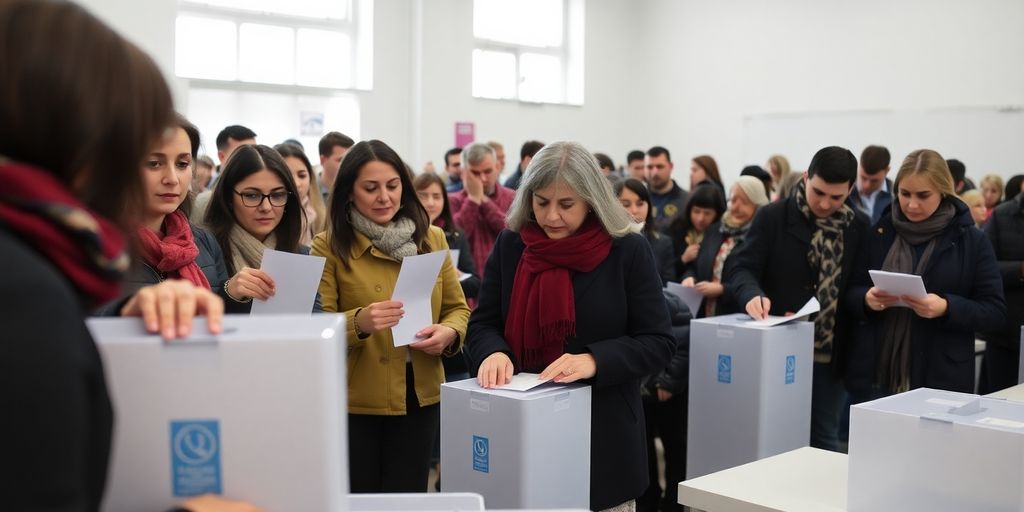Kosovo recently held parliamentary elections that were marked by a peaceful and inclusive process, showcasing progress in its democratic development. However, the ruling party’s failure to secure a majority has led to potential political deadlock as coalition talks loom.
Key Takeaways
- Kosovo’s ruling party, Vetevendosje, won 41.99% of the vote but lacks a majority.
- The elections saw increased representation of women in parliament, exceeding the mandated 30% quota.
- Political tensions with Serbia and economic challenges remain significant issues for the new government.
Election Overview
The parliamentary elections in Kosovo were conducted on February 10, 2025, with a reported voter turnout of approximately 40.59%. Prime Minister Albin Kurti’s party, Vetevendosje, emerged as the frontrunner, securing nearly 42% of the votes. Despite this victory, the party fell short of the 61 seats needed for a majority in the 120-member Assembly.
The results indicate a fragmented political landscape, with the Democratic Party of Kosovo (PDK) and the Democratic League of Kosovo (LDK) trailing behind with 22.68% and 17.9% of the votes, respectively. This outcome raises concerns about the formation of a stable government, as both opposition parties have ruled out coalition agreements with Vetevendosje.
Progress in Representation
One notable achievement of this election was the increase in women’s representation in the Assembly. The number of women elected exceeded the 30% gender quota mandated by law, reflecting a positive trend towards inclusivity in Kosovo’s political sphere. This development was highlighted by Caroline Ziadeh, the UN’s Special Representative, who commended the peaceful nature of the elections and the progress made in gender representation.
Challenges Ahead
Despite the electoral progress, Kosovo faces significant challenges:
- Political Deadlock: With no party able to form a majority, the potential for a prolonged political stalemate looms.
- Tensions with Serbia: Relations with Serbia remain strained, particularly regarding the status of the ethnic Serb minority in Kosovo. Kurti’s government has taken steps that have raised tensions, including restrictions on the use of the Serbian currency.
- Economic Concerns: Kosovo is one of Europe’s poorest countries, and the new government will need to address pressing economic issues, including attracting foreign investment and managing public services.
- International Relations: The EU and the U.S. have expressed concerns over Kurti’s approach to governance, particularly regarding ethnic tensions and the normalization of relations with Serbia. Funding from these international partners has been suspended pending improvements in the political climate.
Looking Forward
As Kosovo prepares for the formation of its new government, the focus will be on navigating the complex political landscape and addressing the pressing issues facing the country. The international community is watching closely, as the stability of Kosovo is crucial for the broader region.
In conclusion, while the recent elections represent a step forward for Kosovo’s democracy, the path ahead is fraught with challenges that will require careful negotiation and cooperation among political parties to ensure a stable and prosperous future for the nation.
Sources
- Kosovo’s inclusive and peaceful election marks progress, but challenges remain, Department of Political and Peacebuilding Affairs.
- Kosovo’s governing party wins parliamentary election but without majority, preliminary results show, AP News.
- Kosovo’s inclusive and peaceful election marks progress, but challenges remain, UN News.
- Kosovo risks post-election deadlock as parties rule out coalition, Reuters.






